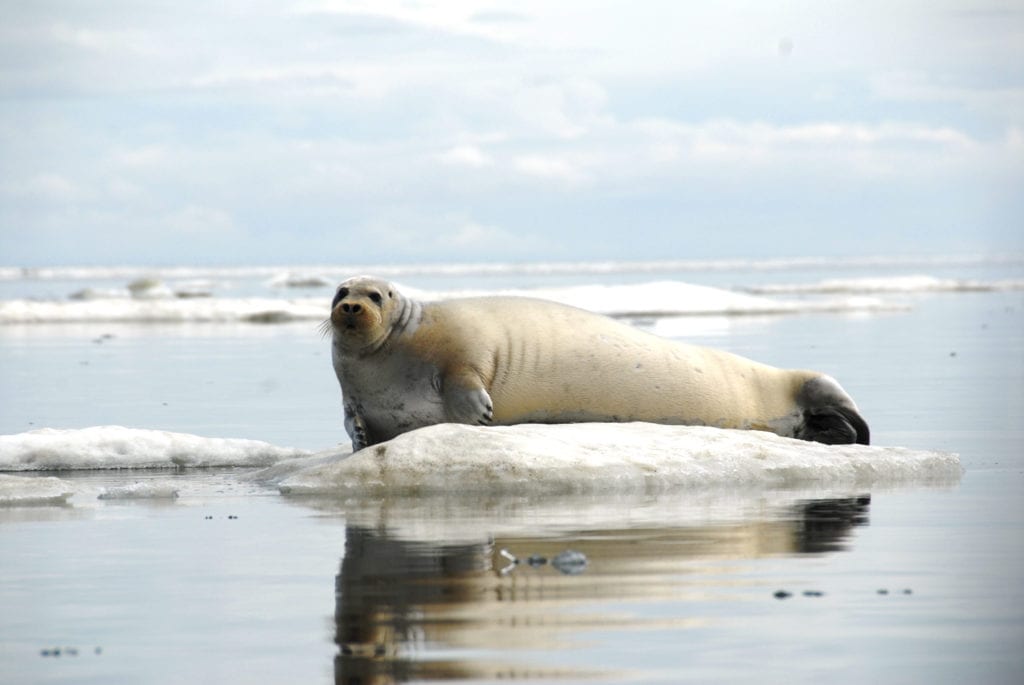
Male bearded seals looking for love during mating season are well known for the gusto of their mating call, with even their softer vocalizations being louder than a chainsaw.
And to find a mate in the Bering, Chukchi and Beaufort seas, they already need to be louder than their similarly boisterous brethren.
But in the rapidly changing Arctic, where industrial activities are predicted to rise dramatically over the next 15 years, researchers at Cornell University say bearded seals may need to adjust their mating calls to be heard above noise generated by ships and commercial activities.
This could prove a challenge for ugruk, as they are known in the Inupiaq language, and for subsistence hunters as well, since ugruk reproduction is crucial to subsistence and cultural activities in Inupiaq communities dotting the Arctic coast of Alaska.
A study conducted by the Cornell Lab of Ornithology’s Center for Conservation Bioacoustics found that when ambient underwater noise gets too loud bearded seals are no longer able to compensate in order to be heard.
Results of this study, “Limited Vocal Compensation for Elevated Ambient Noise in Bearded Seals: Implications for an Industrializing Arctic Ocean,” were published on Feb. 24 in Proceedings of the Royal Society: Biological Science. The research article was also posted at EurekAlert, the American Association for the Advancement of Science website.
According to Michelle Fournet, the CCB postdoctoral researcher who led the study, the question was whether bearded seals would call louder when their habitat grew noisy from natural sound sources.
“The goal was to determine if there was a ‘noise threshold’ beyond which seals either couldn’t or wouldn’t call any louder in order to be heard,” she said. “By identifying this naturally occurring threshold, we can make conservation recommendations about how loud is too loud for human activities.”
The under-ice habitat near Utquigvik from spring through early summer is flooded with vocalizations of male bearded seals, a sound best described by researchers as “otherworldly.”
For two years Fournet and her colleagues listened to thousands of recorded vocalizations of bearded seals from Arctic Alaska, measuring and comparing each call with the concurrent ambient noise conditions. They concluded that bearded seals do call louder as their underwater acoustic habitat gets noisier, but that there is an upper limit to this behavior.
Once the ambient noise gets too high, bearded seals are no longer able to compensate in order to be heard, they said. As ambient noise conditions rise, the distance over which the roar of individual bearded seals can be heard diminishes.
“Given that these are reproductive calls, it is likely that the seals are already calling as close to as loudly as possible – the males very much want to be heard by the females,” said Fournet. “So, it is unsurprising that there is an upper limit. I’m grateful that we have been able to identify that limit so we can make responsible management choices moving forward.”





